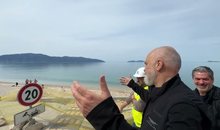
 Flash News
Flash News
Document/ Benet Beci was taken into custody by SPAK before the elections
Montenegrin Army to train Ukrainian soldiers
The Serbian Federation reveals the stadium where it will host Albania on October 11!
The 40-year-old survived the air disaster: When I opened my eyes, I saw bodies everywhere, then...
State Matura 2025, foreign language exam grades published
Curvy roads and looking at your phone make you nauseous? Find out why

Many of us have experienced it: during a car trip, while reading or using our phone in the back seat, we get nauseous, dizzy, or have a headache. The trip is ruined.
But help may come from an unlikely source: astronauts. They too face motion sickness during space missions. Scientists studying the phenomenon in space hope to help not only space exploration, but also people on Earth.
A 2020 study found that 59% of participants had experienced motion sickness in the past 5 years. For astronauts, it's even more common, with about 70% experiencing serious symptoms, despite medications like scopolamine.
According to researcher Aaron Allred of the University of Colorado, one of the most widely accepted theories is vestibular sensory conflict, a mismatch between what we sense through the vestibular system and what our brain expects to sense. For example, when you read in a moving car, your brain doesn't "anticipate" the motion, causing dizziness.
In contrast, the car driver sees the road and anticipates movement, so he rarely feels motion sickness.
In a 2025 study, participants were placed in a device that simulated lateral movement while receiving electrical stimulation to the vestibular system. Some stimuli were used to alleviate symptoms, while others were used to worsen them.
Results: incentives aimed at reducing the disease decreased it by 26%, while those that worsened it increased it by 56%.
This technology is not yet available to the public. So the main advice is: avoid sensory conflict. Don't read in the car, look at the horizon, or close your eyes.
If symptoms persist after you stop traveling, it could be something more serious. Some conditions, such as vestibular migraines or balance system disorders, can mimic motion sickness. A proper diagnosis requires medical attention.
Hope lies in research for astronauts, which can translate into solutions for travelers on Earth. / Discover Magazine - Syri.net
Latest news


Document/ Benet Beci was taken into custody by SPAK before the elections
2025-06-12 22:52:12








Montenegrin Army to train Ukrainian soldiers
2025-06-12 20:13:45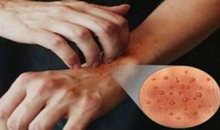
Italia në alarm, zgjebja po përhapet me shpejtësi
2025-06-12 20:11:39

Dua Lipa gets engaged: I'm happier than ever with Callum Turner
2025-06-12 19:44:29

Around 29,000 Albanians left last year, INSTAT estimates
2025-06-12 19:31:23

Rama "sacrifices" the socialists to make fun of Soros
2025-06-12 19:13:33
Montenegrin Army to participate in EU military assistance mission to Ukraine
2025-06-12 18:57:36



Body acne, six ways to prevent it
2025-06-12 18:05:03

State Matura 2025, foreign language exam grades published
2025-06-12 17:31:26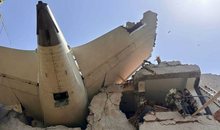
Video/ This is the moment the Air India plane crashes with 242 people on board
2025-06-12 17:27:59
GJKKO postpones the hearing for 'Golden Bullet' to June 17
2025-06-12 17:23:50
The decline of democracy in Albania, the alarm from the European Parliament
2025-06-12 17:03:38

What does the murder of Superman Veliaj reveal about May 11?
2025-06-12 16:40:53


UN report: Europe is surrounded by a belt of countries in crisis
2025-06-12 16:08:47
Sula: The scandal with the state matura, a failure of the education system
2025-06-12 16:08:42

'I have no affection', Erion Isai separates from his wife
2025-06-12 15:40:38


On the 84th anniversary, the SP is ever bigger, Albania is ever smaller
2025-06-12 15:07:25
A "lazy day" a week can reduce stress and stroke risk
2025-06-12 14:56:30

Tragic in Fier, 28-year-old found dead in the yard of his apartment
2025-06-12 14:39:15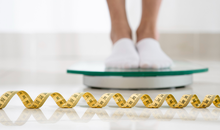
How does temperature affect body composition?
2025-06-12 14:33:18
Throwing company waste into the Buna River, 31-year-old employee prosecuted
2025-06-12 14:30:11

LDK's Abdixhiku unveils 15-point agenda for a unity government
2025-06-12 14:14:24
From shootings to stabbings/The history of deadly school attacks
2025-06-12 14:11:51
3 Albanians, part of criminal organizations, extradited to Italy
2025-06-12 13:59:15
A 26-year-old man is arrested for the armed conflict in Ali Dem
2025-06-12 13:40:31
Report/ Albania worsens in gender equality index
2025-06-12 13:40:14

Quarrel between neighbors in Patos, 35-year-old injured with screwdriver
2025-06-12 13:07:05

Accident on the Krahes-Memaliaj axis, a 65-year-old man is injured
2025-06-12 12:45:49

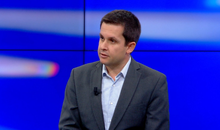
Demand a recount of votes in Tirana, the Court dismisses Alimehmet's case
2025-06-12 12:22:08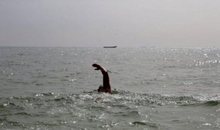
Suffering cardiac arrest, vacationer dies on Qerret beach
2025-06-12 12:05:48

The market is "demanding" a minimum wage increase
2025-06-12 11:52:37
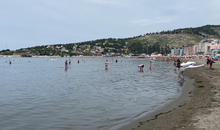
Alarm on the coast/ Elderly woman from Kosovo risks drowning!
2025-06-12 11:25:51
The hearing for "Golden Bullet" is postponed due to the lack of lawyers.
2025-06-12 11:06:27
The Special Court schedules the hearing for the “Partizani” case
2025-06-12 11:00:42
"We work to steal"/ Berisha releases Rama's video: The first time he is honest!
2025-06-12 10:52:11


US limits non-essential staff at embassy in Iraq after rising tensions with Iran
2025-06-12 10:19:44

Hero in Greece/ Albanian immigrant saves two children from drowning in river
2025-06-12 09:52:46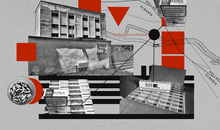
Albanian Customs Officials Crack Down on Cigarette Smuggling Business
2025-06-12 09:37:17

26 years of freedom! Kosovo marks Liberation Day today
2025-06-12 09:14:19
Clear skies across the country, weather forecast for today
2025-06-12 09:03:08
The level of salaries in construction and tourism remains below average
2025-06-12 08:49:54


Murder in Xibar i Klos/ Hazbi Velsula, the victim's cousin, in custody
2025-06-12 08:23:45
Morning Post/ In 2 lines: What mattered yesterday in Albania
2025-06-12 08:09:51

Bylykbashi: The EPP Assembly adopted the strongest resolution in this forum
2025-06-11 22:46:15
A person is found dead in Klos, suspected of being murdered
2025-06-11 22:33:38
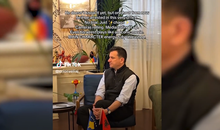

Rape the cleaning worker in Athens, the Greek police declare the Albanian wanted
2025-06-11 21:30:13
Disappointment with Latvia, Elseid Hysaj reacts after disappointing transfer
2025-06-11 21:15:08

EU: New package of sanctions against Russia focuses on energy and finance
2025-06-11 20:51:17

Scandal in Lezhë/ The apartment is covered by sewage
2025-06-11 20:37:59
Rural schools left behind in the use of digital tools
2025-06-11 20:09:51
Kosovo bans import of sheep and goats from Albania
2025-06-11 20:01:17
Shot in the head, former Albanian policeman dies after 3 days
2025-06-11 19:41:08


Weather-shaping factors: How cloud-dwelling microbes affect our lives
2025-06-11 19:01:22

